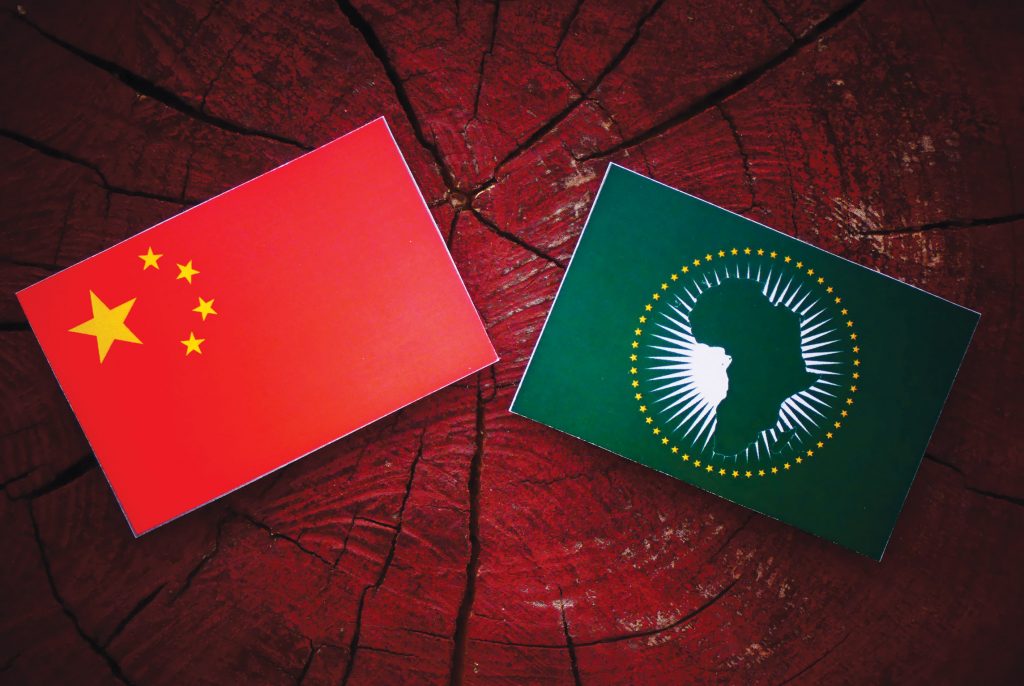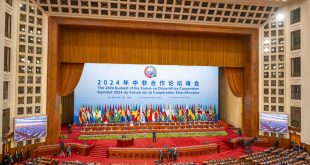Published: November 29,2022
By Gerald Mbanda

In recent years, western media has consistently built a narrative about China-Africa cooperation that is the opposite of the real situation. There is a claim that China is plunging Africa countries into a “debt trap” by lending much money that cannot be paid back. The narrative goes on to claim that by doing so, China has taken over or wants to take over infrastructure projects like roads, airport and port that have been built in Africa countries through Chinese loans. There is also the story about “China recolonizing Africa.”
From history to the current relationship between China and Africa countries, we cannot find any grain of truth put forward by western media. In fact, when you follow deeply, you find that it is the western countries that have exploited African countries since colonization. China has never colonized any country in the world and therefore, talking about re-colonization is not only false but laughable. How can China re-do what it has never done?
First of all, the Chinese people bond well with Africans because respect other cultures and civilizations. They do not impose on others their own culture and values the way western countries do. A friend of mine told me recently that the European Union presented a trade agreement proposal to his country with conditions that his country accepts to legalize abortion as well as promoting same sex relationships (LGBT)! This shows disrespect of other people’s cultures, and trying to impose their own as universal.
China and Africa share a lot in common, have walked together in a shared past in good and bad. In the 1960s, China helped African Liberation Movements to prepare their struggle for Independence. Tanzania was a training ground for most of these Liberation Movements. The TAZARA railway built between 1968 and 1975 to link the Zambian copperbelt with the Indian Ocean. Called the “Freedom Railway” because it aimed to liberate Zambia from dependency on South Africa and Rhodesia, TAZARA was China’s largest development assistance project in Africa.
This historical friendship should not be taken for granted. It establishes who is the real friend in “NEED” for Africa. China supported struggling African countries for independence out of SACRIFICE, rather than out of abundance or gain.
On October 25, 1971, at the 26th UN African countries supported a resolution sponsored by Albania, Algeria, and 21 other countries, which decided to restore all the lawful rights of the People’s Republic of China in the United Nations and immediately expel the representatives of the Kuomintang clique from the United Nations and all its affiliated agencies.
China’s growing global acceptance is rooted in its very political history. China hasn’t indulged in colonialism or the occupation of foreign territories. The evolving relationship with China is seen by many leaders of developing nations as a historic opportunity to escape neocolonial ties to the West.
China has taken huge pains in its decades-long journey toward being the world’s largest trading entity with Africa and the second-largest economy globally. Cooperation through the Forum for China Africa Cooperation (FOCAC) has created many opportunities for Africa growth and development in various sectors. Both BRI and FOCAC programs complement the African Union agenda 2063, which is Africa’s master plan for transforming Africa into the global powerhouse of the future.
China offers win-win cooperation, allowing governments of developing countries to access its finance, expertise, and development aid without any conditions like interfering in political affairs of other countries. Through China’s Belt and Road Initiative projects, infrastructure development has been realized which promotes both intra and external trade. In fact, BRI projects compliment Africa’s ambitious development projects under agenda 2063 as well as facilitating Africa continental Free Trade Area (AfCFTA).
Last but not least, China has promoted industrialization in Africa by technology transfer and setting up Free Trade Industrial Zones. This has promoted made in Africa goods rather than exporting raw materials. For centuries, western countries deliberately refused to transfer technology to Africa countries so that they can maintain the monopoly of manufacturing and determine the prices. China’s acceptance for technology transfer is a game changer that promotes value addition and African economic growth.
Gerald Mbanda is a researcher and Publisher at Africa-China Review
 Africa -China Review Africa -China Cooperation and Transformation
Africa -China Review Africa -China Cooperation and Transformation
